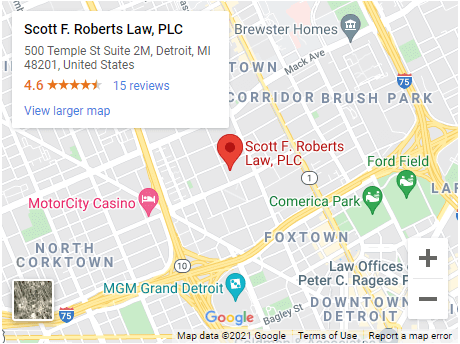As the cannabis industry continues to expand, the regulation of all things marijuana continues to be a growing task for the State of Michigan. As a result, Michigan’s Marijuana Regulatory Agency (MRA) is hard pressed to keep up with the demand for information on its expanding policies. MRA licensed cannabis business owners as well as Michigan cannabis attorneys rely on this information from the MRA to ensure they are continuing to abide by the MMFLA and MRTMA. To better relay this valued information to licensees that need it, the MRA has begun posting the most frequently asked questions by both Michigan cannabis attorneys and business owners in the field. This review reflects the MRA’s latest update to its common business operation questions as of June 1, 2021.
Product Potency Issues
As more cannabis products flood the market looking to get purchased by licensed dispensaries, it is important to know that the MRA requirements for potency in order to ensure these products are approved. The MRA requires that THC and CBD concentrations in those products must be labeled within 10% accuracy or the entire product may be restricted from sale. This means a product labeled at 50mg THC can vary 10%–i.e. 5mg THC—so either as low as 45mg or as high as 55mg is allowed before a cannabis business owner will have an issue.
Product Labeling Issues
Michigan sees an enormous variety of cannabis product labels, some of which may be considered false or misleading by the MRA. Admin rule 420.507(2) states that no cannabis product label may assert deceptive, false, or misleading statements. This is especially important for licensees who employ third-party suppliers for packaging purposes as those licensees become responsible for any labels provided by that third party, including products produced under an MRA approved licensing agreement. Michigan cannabis business attorneys need to make their clients aware that if a label or package supplier has contradictory information on their labels, it’s the licensed cannabis business owner that will suffer the consequences.
METRC Program
The Marijuana Enforcement Tracking Reporting & Compliance (METRC) program is a nationwide system meant to help the cannabis industry house its business information. Many cannabis business owners utilize all of the functions the system offers, however not all of these functions are approved under Michigan’s cannabis laws. Michigan cannabis attorneys must emphasize to licensees that it is their responsibility to ensure they are using METRC within the parameters set by Michigan’s MRA. METRC allows cannabis business owners to utilize options such as an ability to “return to sender” of unwanted products, to enter valid sales of products under administrative hold, and to use unauthorized license types for transferring product; none of these functions of METRC are allowed under Michigan cannabis law.
Many licensed cannabis business owners choose to use third-party point-of-sale (POS) systems. These systems are meant to streamline business transactions such that the licensee does not have to keep track of every sale or transfer on their own. These third-party POS systems may not always result in accurate reporting, errors in such POS systems are detrimental to smooth business operations but are not directly an MRA issue. However, inaccurate information in METRC is a direct MRA issue, so if these third-party systems enter flawed reports, it will be the licensee that will face disciplinary action.
To this point, it is important that MMFLA and MRTMA licensees utilize POS systems that smoothly integrate with METRC and remain supported by the software providers. As cannabis business attorneys, we’ve encountered situations where errors in the POS systems have caused errors in METRC, which have in turn led to citations from MRA. While MRA will consider this as a mitigating factor when negotiating a citation, it is still best to stick with proven POS systems that continue to be supported by the software providers.
Temporary Marijuana Events and Designated Consumption Establishments
As cannabis consumption becomes more commonplace, public events and establishments will increasingly seek to cater to such consumers. Temporary Marijuana Events (TME) and Designated Consumption Establishments (DCE) allow licensed cannabis companies to provide spaces for Michigan cannabis consumers to consume their products. Many licensees that apply for TMEs and DCEs are looking to also serve/sell food and alcohol at these locations. Any and all sales of alcohol are separately regulated by the Michigan Liquor Control Commission (MLCC) and thus only MLCC can approve the sale of alcohol at a TME or DCE.
Food consumption, on the other hand, is allowed at a TME or DCE as long as the licensee receives the applicable local and state food regulator authorization, though this is often easier said than done. The only specific MRA requirement for food or beverage at a temporary marijuana event or designated consumption establishment is that these products must be stored separately from any marijuana to avoid cross-contamination. Failure to receive proper authorization for food and beverage consumption at a TME or DCE will result in the licensee being subject to MRA investigation.




